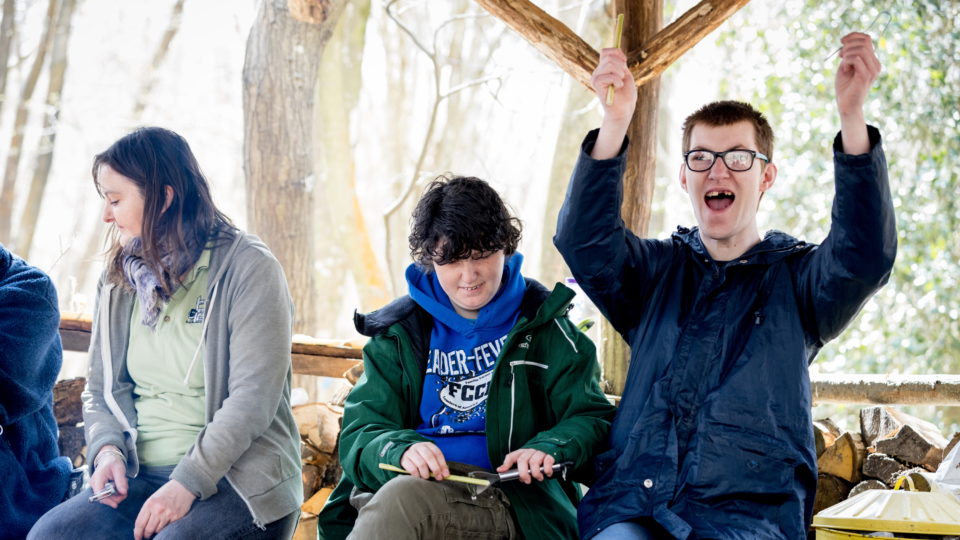Modern Slavery Statement
BBC CHILDREN IN NEED AND CHILDREN IN NEED LIMITED MODERN SLAVERY STATEMENT
FINANCIAL YEAR ENDED 30 JUNE 2024
This statement is made pursuant to section 54 of the Modern Slavery Act 2015. It constitutes BBC Children in Need and Children in Need Limited’s seventh statement setting out the work undertaken during the financial year ended 30 June 2024 to identify, prevent and address modern slavery across our organisations and supply chains.
- ORGANISATION
BBC Children in Need exists to change the lives of disadvantaged children and young people in the UK. Our vision is that every child in the UK should have the chance to thrive and be the best they can be. BBC Children in Need has one wholly owned trading subsidiary, Children in Need Limited and together we have 152 employees based across the UK.
We have a varied supply chain covering services which are provided within the UK, a wide range of products and branded merchandise including those manufactured overseas, and UK based licensees. We are committed to working to ensure everyone who works for and with us is treated fairly, is able to work safely and has their human rights protected and respected. We have a responsibility to work to ensure modern slavery is not present in any form across the charity and within our supply chains and we are committed to ensuring our practices support this.
As the BBC’s corporate charity, BBC Children in Need is supported by, and seeks to align itself to the policies of the BBC in a number of ways, including our approach to modern slavery. You can read the BBC Group’s Modern Slavery Statement here.
- APPROACH TO TACKLING MODERN SLAVERY
We continue to adopt a targeted approach to identifying and tackling ethical issues, including modern slavery, in our organisation and supply chain.
In line with our programme we have structured governance and management arrangements focused on the issue of modern slavery
- Our work to tackle modern slavery is overseen by internal stakeholders. This is a focused group, based on risk areas within the organisation.
- Our Trustees receive an annual update on our activities in relation to tackling modern slavery.
- Our Ethical Policy and programme are overseen by our Executive Team.
We have continued to ensure our people and suppliers are aware of our policies which highlight our ethical requirements
- Our policies and guidelines across our organisation and the BBC set out our expectations of our people, stakeholders and suppliers. All staff involved in sourcing or licensing of products are also expected to follow the requirements of our ethical trading programme.
- Our Ethical Policy sets out our expectations of our suppliers. It is in line with the Ethical Trading Initiative Base Code and reflects the International Labour Organisations Conventions and Recommendations including clauses covering forced labour. This policy forms part of our standard Supplier Terms of Trade, Freelance Terms and our agreements with corporate partners and licensees, except in cases where licensees’ own policies are deemed to set a higher standard than or equivalent to ours. The policy sets out our requirements on labour standards and is prefaced by a list of minimum standards that partners must meet before we are able to work with them. It is issued at the point of engagement with the individual or supplier and is reviewed periodically. A copy of our Ethical Policy is available on request. Our Ethical Policy will be fully reviewed in 2024/2025.
- We continued to communicate the BBC’s Code of Conduct internally to all members of the organisation which was updated in 2023/2024 The Code sets our expectations of ethical conduct, fair, respectful treatment, and also highlights how our employees and others engaged on BBC Children in Need business may raise concerns.
Our approach remained risk based, targeted where people are most at risk
- When determining where the greatest risks lie and how to focus our efforts, we assess where workers are more likely to be at risk of ethical issues, including modern slavery, based on the type of product or service being provided, their geographic location and any known previous issues or the scale and type of our relationship with suppliers. These factors affect our ability to influence and impact change.
- We continue to determine that our risk is greatest in our supply chain categories of official merchandise, branded product for promotional use and licensed product. Our due diligence measures described in this statement therefore continue to predominantly focus on these areas.
Our due diligence processes continue to be applied to seek to identify and monitor issues
- For our core products, we review ethical trade questionnaires or audit reports and ensure that all suppliers and factories producing our own label merchandise are members of SEDEX and have up to date SMETA audits in place.
- Our on-boarding and tender processes for new suppliers applies focus to our ethical trade requirements to ensure consistency in evaluating potential partners’ ethical trade processes and controls prior to the start of any relationship.
We continue to build awareness across key internal and external stakeholders
- Training on ethical and fair trading remains part of our awareness approach for relevant members of staff, along with regular knowledge sharing. In 2023/24 we launched our new ‘Our BBC and You’ mandatory training for all new starters and existing staff (to be completed every 2 years). The course includes guidance on complying with our Code of Conduct, which sets out our expectations in relation to ethical conduct. Completion rates are monitored and non-completion is followed up.
- Responsibility for oversight of ethical compliance sits with our Director of Finance and Operations, and in respect of trading with our Head of Trading, during 23/24 to reflect its importance and to drive overall consistency in implementation within operational teams.
- We also provide guidance documentation to product manufacturers on how to follow our ethical trading programme, underlining that minimum standards on forced labour and other serious issues must be met before a factory can be approved for production.
- Our whistleblowing policy confirms our and the BBC’s commitment to maintaining the highest standards of ethics, honesty, openness and accountability and set out procedures for raising concerns in relation to, amongst other things, acts of abuse or exploitation . This policy was updated in July 2022 and continued to be available for our staff to use if they become concerned. There were no issues relating to modern slavery raised over the last year.
- The BBC also has a dedicated Modern Slavery area on its intranet available to all of our staff where it publishes awareness materials.
- FUTURE PLANS AND PRIORITIES
We appreciate the significance of our role in helping to identify, prevent and help eradicate modern slavery. We are committed to operating a responsible organisation, sourcing products and services ethically, and helping to raise standards across the industry.
In line with our programme, during the next year we will:
- take a risk based approach and revisit our ethical risk assessment annually;
- ensure that as a condition of supply, any manufacturer or importer of BBC Children in Need core product will need to submit an ethical audit, conducted within the last 12 months, and we will specify appropriate auditors;
- work more closely with the BBC’s Ethical Trade Working Group to facilitate collaboration and good practice sharing;
- monitor progress of the House of Lords Select Committee on the Modern Slavery Act 2015 and consider any changes to our approach that may be required as a result of their findings;
- review and update our Ethical Policy; and
- focus communications and awareness-raising activity on key risk areas, particularly within licensing.
This Statement was approved by the Board on 9 December 2024

Signed by James Fairclough, Chair
Further information
- Previous BBC Children in Need Modern Slavery Statements can be found by clicking the link at the bottom of this webpage
- BBC Group Modern Slavery Statement ( https://downloads.bbc.co.uk/aboutthebbc/reports/pdf/bbcmsa2023.pdf
- The Ethical Trading Initiative Base Code (https://ethicaltrade.org/eti-base-code)



